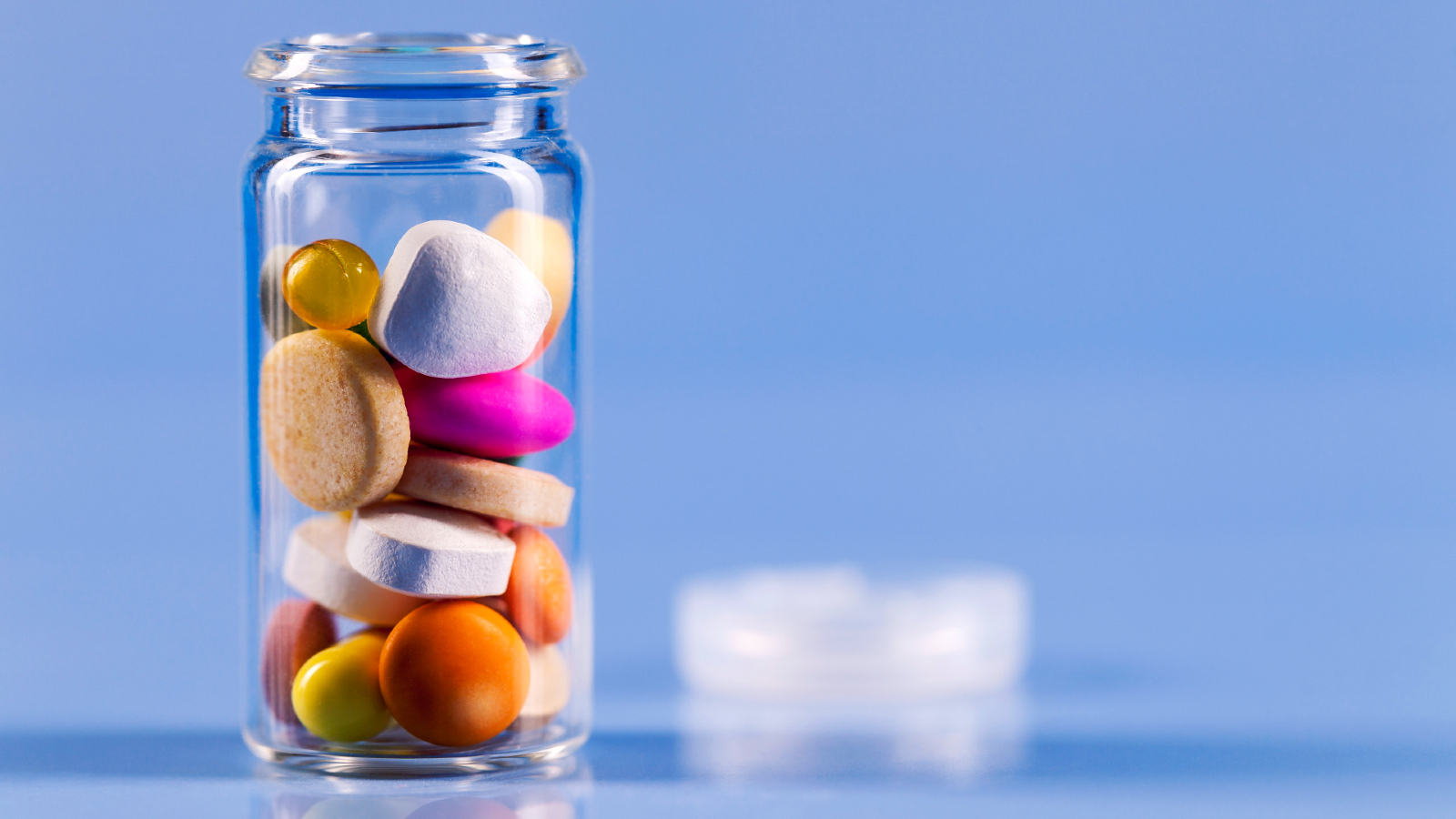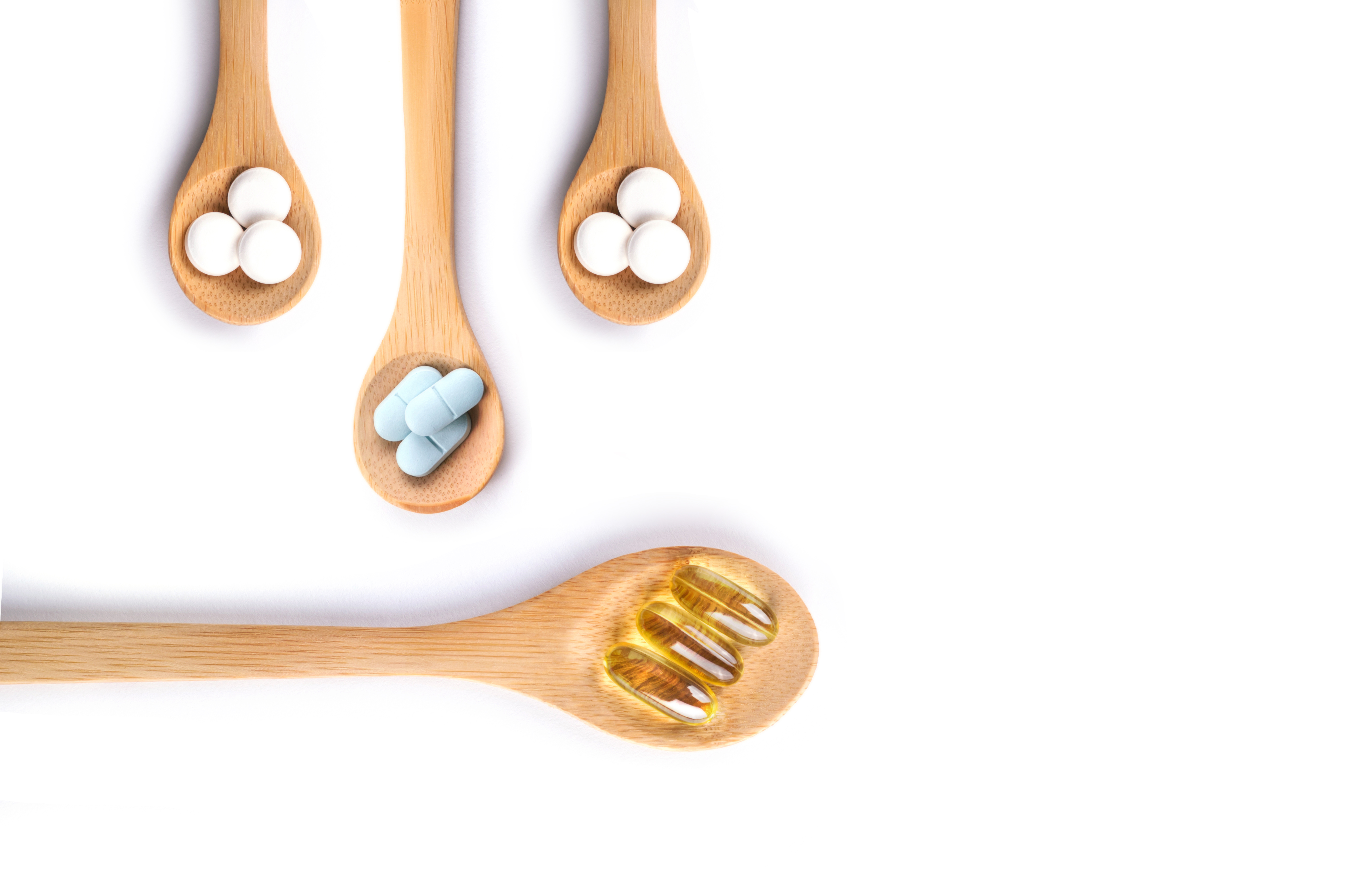Immunity supplements—the vitamins and minerals you need to stay well
These key immunity supplements will help supercharge your body

A strong immune system helps you ward off ailments, recover quicker and even sleep better. And immunity supplements can help keep your immune system in peak condition.
Every day our immune system is bombarded with pathogens, bacteria, parasites, and pollution, and every day it steps in to protect us and essentially save our life. "As amazing as the immune system is, we need to look after it if we want it to perform at its best," says Rob Thorp, founder of Vite Natural.
Eating a healthy balanced diet is key to boosting our immunity. "We need to have a healthy amount of all the essential vitamins and minerals in order for our immune system to work optimally," adds Dr. Jenna Macciochi, immunologist and ambassador for wellbeing brand Healthspan. "Deficiencies in any of these can impair your immunity and increase the risk of infection." Often, our busy lives mean we don't eat as healthily as we should. Health issues, such as having poor gut health, food allergies, microbiome imbalances (after a large dose of antibiotics), or conditions like IBS, can also prevent us from absorbing nutrients properly.
That’s when a little hero, in the form of a vitamin or mineral supplement, can work wonders. You might have already turned to supplements for sleep, but have you considered supplements for boosting your immunity?
Why immunity supplements are beneficial to our body

Immunity supplements provide our immune systems with the fuel they need to fight germs. And, if you have a nutrient deficiency, it's vital you boost your immune system. When our bodies are wrestling with an infection, like a cold or flu, our immune systems become increasingly active. They need a ready source of energy as they go into battle, so the demand for nutrients soars. "Not to mention resolving the collateral, healing and repairing after the germ is gone," says Dr Rob Macciochi.
"While we can try to provide our body with everything it needs to keep our immune system healthy, it's not always possible," says Dr Macciochi. Time, finances, and access to fresh ingredients are often a barrier to a perfect diet. If you're not getting your recommended daily intake (RDI) of vitamins and minerals, it might be wise to top up with immunity supplements to make up for the nutritional deficit and help your immune system do its job.
5 vitamin supplements that will boost your immunity
Here, we reveal which immunity supplements you should be stocking up on to stay well.
Sign up to our free daily email for the latest royal and entertainment news, interesting opinion, expert advice on styling and beauty trends, and no-nonsense guides to the health and wellness questions you want answered.
1. Vitamin C
When it comes to protecting against infection, vitamin C is arguably the most reached-for pill. That's because it's a powerful antioxidant that encourages white blood cell production, which protects the body against infection. "It may also provide a small reduction in the length and severity of a cold," says Dr. Macciochi.
It's often available as a combined supplement with zinc. That's because zinc is needed for immune cell development and plays an important role in the response to inflammation. It also protects tissue barriers in the body and helps prevent viruses or bacteria from entering. According to scientists at the Aachen University in Germany, 16% of all deep respiratory infections worldwide have been found to be due to zinc deficiency. So together they can provide the ultimate immune boost.
How much should you take?
The recommended daily intake (RDI) of vitamin C is 40mg/day, while the RDI of zinc is 8mg for women per day.
When should you take it?
Ideally, take vitamin C first thing in the morning around 30-45 minutes before breakfast. This is because it's water-soluble and therefore best absorbed on an empty stomach. If you're taking a combined vitamin C and zinc supplement and the zinc is upsetting your tummy, you can take it with a meal.
2. Vitamin E
Not only responsible for encouraging healthy skin and hair, but vitamin E is also one of the most effective nutrients known to regulate immune function. Studies have revealed that it's found in a higher concentration in immune cells compared to other cells in the blood.
It helps your body’s immune function by supporting the growth of T cells. The role of a T cell is to fight infection by battling against infected cells and activating other immune cells to help your body fight back.
How much should you take?
The RDI of vitamin E is 3mg per day for women.
When should you take it?
Vitamin E is fat-soluble, so it must be taken with food containing fat to be absorbed.
3. Selenium
This essential trace mineral can help stop a sniffle in its tracks. And it’s backed by science, too. Researchers at Jinan University in China and John A Burns School of Medicine, in Hawaii, have found a deficiency in selenium negatively impacts how well you fight infection and disease.
"Low selenium is considered a contributing factor for viral mutation, which could explain why so many new [flu-type] viruses emerge from Asian countries where selenium intakes are very low," adds Healthspan's medical director Dr. Sarah Brewer.
Selenium also helps lower oxidative stress in your body, which reduces inflammation and enhances immunity.
How much should you take?
The RDI of selenium is 55mcg per day.
When should you take it?
Selenium and vitamin E facilitate each other's absorption, so take them together. But remember to speak to your medical provider before you start taking new supplements or combining different ones.
4. Vitamin D
It's dubbed the immunity super vitamin, but despite this only about 25% of us are taking it. Research has shown that up to 40% of us have low levels in the winter months, so it’s no wonder a daily vitamin D supplement is recommended in countries without much sunlight. In warmer weather, we can get our daily dose from the sun (it’s synthesized by our body via sun exposure) but, from October to March in the countries like the UK, UVB rays just aren’t strong enough.
The sunshine vitamin could help to activate our hunter-killer immune cells, a type of white blood cell that washes out and destroys viruses and bacteria. "Maintaining vitamin D levels [also] reduces the risk of respiratory tract infections," adds Dr. Macciochi.
How much should you take?
The RDI of vitamin D is 10mcg per day.
When should you take it?
Like vitamin E, vitamin D is also a fat-soluble vitamin. This means it doesn't dissolve in water and is best absorbed into your bloodstream when paired with high-fat foods.
5. Probiotics
Not just good for our guts, probiotics can also keep our immune system healthy. With over 70% of our immune cells located in our gut, which communicate directly with our gut bacteria, evidence indicates that live bacteria supplements help our ability to fight infections. Our gut health is also linked to anxiety.
To really super-boost their immune-improving abilities, probiotics are actually most effective when combined with prebiotics. "Together they exhibit a powerful anti-inflammatory effect and help prevent a wide range of immunity-related diseases," says Rob.
How much should you take?
The RDI of probiotics is 5-10 billion colony forming units per day.
When should you take it?
The best time to take a probiotic is on an empty stomach—either first thing in the morning or at least an hour before food.
Natural immunity boosters

Consuming your RDI of vitamins and minerals is key in keeping us healthy. However, apart from taking immunity supplements, there are other things you can do to stay on top form.
- Complete 150 minutes of moderate-intensity exercise each week—this should include aerobic and muscle-strengthening sessions. Why not slip on a pair of the best women's walking shoes and head for the hills this weekend?
- Aim for 7-8 hours of good quality sleep—establish a bedtime routine with regular wake and sleep times. Making sure you have the best pillow for you and sleep-friendly room conditions can really help.
- Maintain a healthy weight—aim for a BMI between 18.5-24.
- Avoid smoking and drink less alcohol—The NHS recommends not drinking more than 14 units of alcohol a week, spreading out units during the week, and having plenty of alcohol-free days too.
- Manage stress levels—short-term stress can help boost performance and even bolster our immune system. But chronic long-term stress can suppress our immune system. Just learning how to breathe better can help reduce stress levels.
Can you take too many supplements?
According to the experts, yes you can take too many supplements. Never be tempted to take more than you need to keep a cold at bay.
"Mega-dosing of supplements is never a good idea, as they can lead to toxic levels," says Dr. Macciochi. Some can also interact with medication, so speak to your medical provider before taking any new vitamins or minerals.
Natalia Lubomirski is a health journalist with 16 years' experience in the publishing industry. She has worked for a number of well-known magazines and websites including Marie Claire, marieclaire.co.uk, woman&home, Top Sante, Boots and The Telegraph.
She likes to think she practices what she preaches when it comes to health and fitness. She loves the great outdoors and you’ll often find her up a mountain somewhere. She’s climbed eight major mountain ranges across four continents and hit the summit of Half Dome (in Yosemite) during her honeymoon.